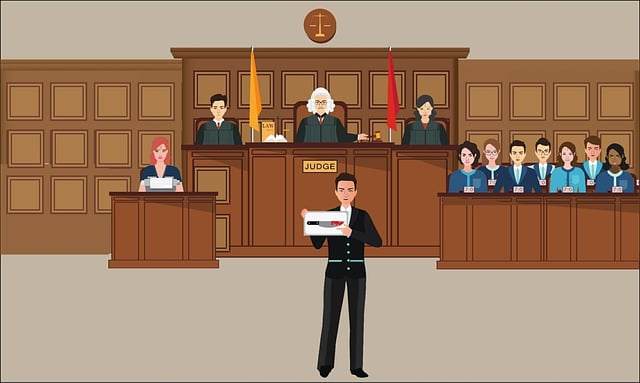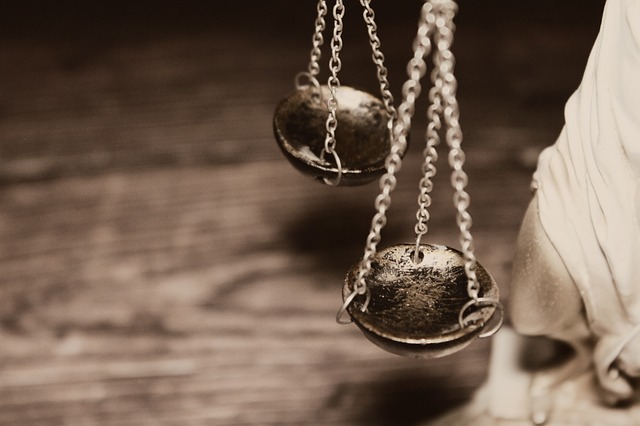Gaining a deep understanding of criminal defense strategies is crucial for legal professionals to navigate complex cases, analyze evidence, and construct compelling arguments. This expertise enables them to challenge prosecution cases, expose errors, and invoke defenses, ensuring fairness and justice in criminal proceedings. By leveraging strategic approaches like thorough investigations, persuasive legal arguments, and ethical practices, attorneys build robust defenses and protect their clients' rights.
“Uncovering effective criminal defense strategies is key to navigating complex legal systems. This comprehensive guide offers insights into building a robust defense, from understanding foundational concepts to exploring common legal defenses. We delve into the essential elements that constitute a strong case, while emphasizing ethical considerations in criminal defense practices. By examining these strategies, individuals and professionals alike can gain expertise in navigating criminal proceedings, ensuring justice and due process.”
- Understanding Criminal Defense Strategies: A Foundation for Expertise
- Common Legal Defenses: Navigating Criminal Proceedings
- Building a Strong Case: Key Elements of Effective Defense
- Ethical Considerations and Best Practices in Criminal Defense
Understanding Criminal Defense Strategies: A Foundation for Expertise

Understanding criminal defense strategies forms the foundation for building expertise in criminal proceedings. It involves a deep grasp of legal principles, procedural rules, and constitutional rights that are pivotal in protecting individuals accused of crimes. A comprehensive understanding enables defenders to navigate complex cases, analyze evidence critically, and develop robust arguments on behalf of their clients.
This knowledge base equips professionals with the skills to challenge the prosecution’s case, highlight procedural errors, and invoke applicable defenses. By mastering these strategies, they can provide effective representation, ensuring that every aspect of the criminal proceedings is conducted fairly and justly.
Common Legal Defenses: Navigating Criminal Proceedings

Navigating criminal proceedings requires a deep understanding of legal defenses, which can significantly influence the outcome of a case. Common legal defenses include self-defense, defense of others, and lack of intent—each with its own unique requirements and nuances. Expertise in these areas is crucial for constructing a robust defense strategy.
Attorneys skilled in criminal proceedings leverage their knowledge to challenge the prosecution’s case, presenting alternative explanations and mitigating factors. They meticulously examine evidence, witness testimonies, and applicable laws to identify weaknesses and formulate persuasive arguments. This strategic approach aims to protect the rights of the accused, ensuring a fair trial and exploring all viable options within the confines of the law.
Building a Strong Case: Key Elements of Effective Defense

Building a strong case is paramount in criminal proceedings, and an effective defense strategy relies on several key elements. First and foremost, thorough investigation is crucial. This involves gathering all relevant evidence, interviewing witnesses, and carefully reviewing the prosecution’s case to identify weaknesses or discrepancies. Legal experts play a vital role here, utilizing their criminal proceedings expertise to uncover potential loopholes and missteps that could strengthen the defense narrative.
Additionally, crafting a compelling legal argument is essential. Defense attorneys must possess the skill to interpret laws and regulations, apply them to the specific case, and present a persuasive argument to the jury or judge. A well-structured defense strategy should address all applicable defenses, challenge the prosecution’s evidence, and provide alternative explanations, ultimately aiming to raise reasonable doubt in the minds of the decision-makers.
Ethical Considerations and Best Practices in Criminal Defense

In the realm of criminal defense, ethical considerations are paramount. Attorneys must uphold their clients’ rights while adhering to the highest standards of professionalism and integrity. This includes ensuring confidentiality, avoiding conflicts of interest, and maintaining clear communication with clients throughout criminal proceedings expertise. Transparency and honesty build trust, crucial for the attorney-client relationship, especially during stressful legal battles.
Best practices dictate that defense lawyers remain objective and impartial, presenting evidence fairly without bias. They must be adept at navigating complex legal systems, utilizing their knowledge to challenge prosecution evidence and arguments effectively. By employing strategic tactics, staying updated on relevant laws and court rulings, and leveraging their clients’ unique circumstances, criminal defense attorneys can provide robust representation, ensuring a fair trial process.














